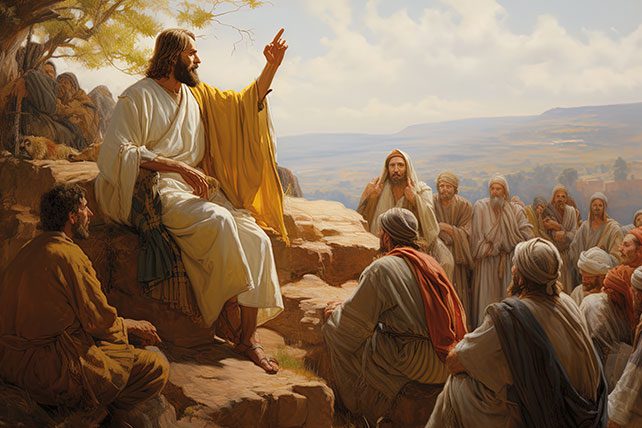Christianity stands as one of the world’s oldest and most influential religions, tracing back approximately 2000 years to the teachings of Jesus of Nazareth. Understanding the historical depth and origins of Christianity is essential for both believers and scholars, as it sheds light on the question, “How old is Christianity?” We’ll discover truths about the age of Christianity—exploring its beginnings, spread, and enduring legacy across the globe.
Historical Foundations: How Old Is Christianity?
Christianity’s inception is closely linked to the life and teachings of Jesus, a Jewish teacher in the first century AD in the region of Judea. His message of love, redemption, and the kingdom of God laid the groundwork for what would become Christianity. After his crucifixion and resurrection (Luke 24:6-7), his followers, inspired by his life and teachings, began to spread his message, forming the early Christian community.
RELATED: Messy Church History: Keepin’ Us Honest
The missionary efforts of figures like Paul, a pivotal character in the spread of Christianity, were instrumental in its expansion beyond Jewish communities. Paul’s journeys and epistles contributed significantly to the establishment and doctrinal development of early Christian churches across the Roman Empire.
Christianity’s Emergence from Judaism
Originally, Christianity emerged as a sect within Judaism, with its followers believing Jesus to be the prophesied Messiah, or “the Christ.” This acknowledgment marked a foundational belief distinguishing early Christians from their Jewish contemporaries. Despite its origins within Jewish tradition, Christianity gradually evolved into a distinct faith, particularly as it began to encompass non-Jewish (Gentile) followers, leading to theological and cultural shifts away from its Jewish roots.
Expansion and Evolution of Christianity
From small beginnings in Judea, Christianity rapidly spread across the Roman Empire and beyond, driven by missionary work and conversion. The first few centuries AD saw the religion facing persecution but also significant growth. Over time, Christianity evolved in doctrine, practice, and organization, leading to the establishment of various denominations and traditions.
Key events in the history of Christianity timeline, such as the Edict of Milan in 313 AD, which granted religious freedom within the Roman Empire, and the subsequent Councils, like Nicaea in 325 AD, played significant roles in shaping the early church’s structure and beliefs.
Christianity’s spread is a testament to its universal message and adaptability. From its Middle Eastern origins, the religion expanded to Europe, Asia, and Africa. The Christianization of Africa began in the early centuries AD, with significant growth in the Roman province of Africa and later expansion through missionary efforts in the modern era. Today, Christianity’s influence is seen worldwide, with diverse expressions and traditions reflecting its global nature.
Comparative Age: Christianity and Other World Religions
When comparing the age of Christianity to other world religions, it is relatively young. Judaism, for example, predates Christianity by several centuries, while Hinduism and Buddhism are also older. Islam, however, is younger, with its origins in the 7th century AD. This context highlights Christianity’s place in the panorama of world religious traditions, offering insights into its historical interactions and shared heritage with other faiths.

